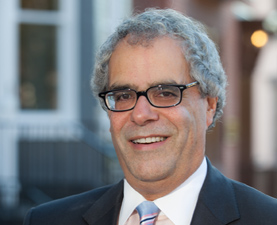By: Charlie Gerow
Like any year, 2014 was filled with events that were often predictable and sometimes surprising. In the midst of the events that dominated the headlines, both locally and nationally, were some themes that will carry into the New Year.
Implications of the mid-term election
 Pennsylvania voters defeated a governor for re-election for the first time, snapping a nearly 60 year streak of eight years in the governor's office and eight years out for the two major parties. At the same time Republicans won huge majorities in the General Assembly, taking seats they had not held in 75 years. Nationally the GOP took control of the U.S. Senate and kept control of the House.
Pennsylvania voters defeated a governor for re-election for the first time, snapping a nearly 60 year streak of eight years in the governor's office and eight years out for the two major parties. At the same time Republicans won huge majorities in the General Assembly, taking seats they had not held in 75 years. Nationally the GOP took control of the U.S. Senate and kept control of the House.
The majorities the Republicans now hold in the legislature will create a very different dynamic, especially with a Democratic governor. Republicans now control 119 seats in the House, their largest margin in over half a century. They have reclaimed their 30-20 advantage in the Senate.
These historic advantages mean that Republicans not only control the General Assembly, they dominate it. With that dominance goes special responsibility. The citizens of our state will look to Republicans in the legislature to craft legislation that spurs economic growth and creates a better quality of life for them. The same holds true in Washington. Voters will be looking for leadership and vision as we enter the 2016 election cycle.
Midterm elections are retrospective while presidential elections are prospective. Mid-terms look back at the previous two (or four) years and are a referendum on the performance of the incumbent. Presidential elections look forward and embrace the hopes, dreams, aspirations and vision of the American people. How well the Republicans can lay out a clear and compelling vision that captures those hopes and dreams will be the largest test of whether they can re-take 1600 Pennsylvania Avenue in 2016.
The rapid fall of Kathleen Kane
As the year began Kathleen Kane was a media darling, being mentioned for offices from governor to president. Now the chatter is focused on whether or not she can even serve out her entire term.
The political wounds she has suffered this year, most of them self-inflicted, could fill this column and more. As her fellow Democrats now are publically questioning both her competence and her credibility, there doesn't seem to a happy path for her in 2016. Her downward freefall is unprecedented and will become the subject of great commentary throughout the coming year.
Old issues re-emerge
Privatization of the state's byzantine system of alcohol sales and solid reform of its unsustainable pensions were two priorities of Governor Corbett. Called a "done deal" in the case of liquor privatization, neither ever got through the legislature and to the governor's desk.
The economic realities of 2015 and a renewed push by the new Speaker of the House, Mike Turzai, may breathe new life into the call for privatization of the liquor system, something Gov. Milton Shapp sought decades ago as did Govs. Thornburgh, Ridge and Corbett.
The pension issue isn't going away even for those who still don't view it as the crisis it is. The biggest piece of the "structural deficit" is the unfunded pension obligation and leaders will be forced to find ways to tackle the problem before it grows even further out of hand.
Social issues shift
Not long ago, legalization of even "medical" marijuana was a back burner issue in Pennsylvania, pushed by far-left Daylin Leach. More recently one of the Senate's most conservative leaders, Mike Folmer, has become a passionate advocate for legalization.
The Senate passed a bill, but it died in the House. With overwhelming popular support for legalization of medical marijuana, it seems unlikely that the General Assembly can fail to act for much longer.
The future of the judiciary
The resignation of one of the state's top jurists gave advocates of "judicial reform" another point to rally their push to politically appoint rather than elect appellate judges. Whether or not the people of Pennsylvania would vote in the referendum required to make such a change to give up their right to vote on judges is an unanswered question.
Regardless, major changes are taking place on the Supreme Court, the oldest in the nation and the pinnacle of the third co-equal branch of government. Chief Justice Ron Castille reached the mandatory retirement age in 2014 and will be replaced by Justice Tom Saylor in 2015. Justice Saylor is a highly respected "academic" with a street smart understanding of the law who will lead the Court with his own style.
The most significant thing for the Supreme Court will be the election of three Justices in 2015. This unprecedented situation will determine political control of the Court and its future course for a generation. Because issues involving the powers of the governor, the constitutionality of legislation and legislative reapportionment come before this Court, the significance of the 2015 elections cannot be understated.
The New Year will bring many challenges to Pennsylvania's political leadership. If a new culture of cooperation can be created and the divisions narrowed, there is reason for optimism.
Charlie Gerow is CEO of Quantum Communications, a Harrisburg-based public affairs firm.

